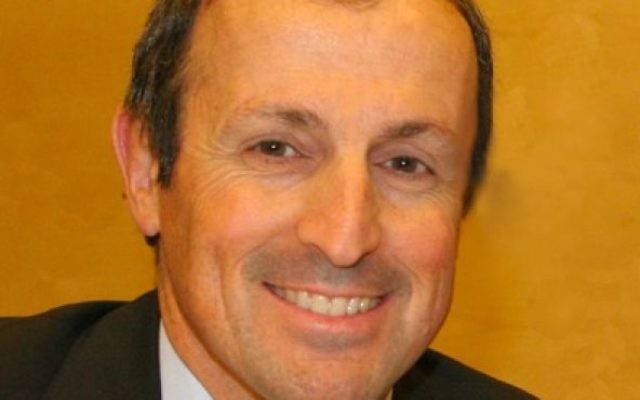Why this NSW Labor Conference was different
TWO years ago, 28 resolutions overwhelmingly critical of Israel were prepared for the 2014 NSW Labor Party conference. Not one came close to supporting Israel.
TWO years ago, 28 resolutions overwhelmingly critical of Israel were prepared for the 2014 NSW Labor Party conference. Not one came close to supporting Israel.
The lead agent on the issue was former foreign minister and NSW premier Bob Carr – who served as founding chair of NSW Labor Friends of Israel for about 27 years.
As foreign minister, Carr took Australia to a new position on Israel, abandoning Canberra’s longstanding policy of opposing United Nations votes that would elevate Palestine’s status and forcing prime minister Julia Gillard to abstain on the issue.
Now he sought to take Labor to a similarly hostile position, using the authority of his former career to convince its left and right factions to support the Palestinian position and throw the book at Israel.
With resolutions declaring East Jerusalem to be occupied and the settlements illegal, Carr carried his highly charged, anti-Israel world view to the 2014 conference, which self-righteously decreed: “NSW Labor recognises a Middle East peace will only be won with the establishment of a Palestinian state.”
In a thoughtful article, NSW Labor Foreign Affairs and Defence Committee former president Michael Easson pointedly wrote: “No responsible former foreign minister should allow personal emotions and pent-up rage against what he calls ‘the Melbourne Jewish lobby’ to cause him to miss the big picture.”
Whether or not history repeats itself is a debate with no definitive answer. However, in the lead-up to last Sunday’s 2016 NSW Labor conference, 28 anti-Israel motions – the identical number as in 2014 – were trotted out.
Just as bizarrely as two years ago – given that the number was again out of proportion to the impact the issue has on Australian or global politics – the motions were channelled through Labor branches among a total of 45 foreign policy items.
Again Carr played an active role, in an orchestrated attempt to push Labor into an increasingly hostile position against Israel, and to drive a wedge between Labor and the Jewish community.
Resolutions called for recognition of Palestine and a ban on settlement products, and castigated Israel for mistreating Palestinians and failing to achieve peace. Not one condemned Palestinian terrorism, incitement or reluctance to negotiate.
But this time it was different. Unlike in 2014, this time all 28 motions were unceremoniously dumped and 850 delegates passed a resolution which fell far short of what the 28 had sought.
It endorsed the motion passed at last year’s federal Labor conference supporting a two-state solution, plus an amendment which “encourages all party members visiting the region for the purpose of understanding the conflict to spend substantial time in both Israel and Palestine” – reflecting the status quo which has prevailed for many years when MPs and officials undertake subsidised trips to Israel.
It was a resounding rejection of the irrational bias against Israel advocated by Carr and a small but vocal handful of party members.
The absurd, but highly publicised, call for a ban on trips subsidised by Jewish organisations was abandoned before the conference began, while a “modified” proposal requiring MPs and officials to spend equal time in Israel and the territories also received short shrift.
Numerous factors played a role in this outcome. It was made possible by the efforts of the large number of friends of Israel and the Jewish community within federal Labor, beginning with Labor leader Bill Shorten and shadow foreign minister Tanya Plibersek, who made their opposition to the hostile resolutions clear. It was made possible by the many friends in the state Labor machine and caucus, who made their principled position clear that they wanted reasoned debate free of vitriol.
It was made possible by the union leaders who were appalled at the actions of those engaged in the blatant anti-Israel vendetta.
And it was made possible by the exceptional efforts of the Australia-Israel Labor Dialogue (AILD), led by Greg Holland and assisted by former senator Michael Forshaw, Mary Easson, Kevin Mooney, Byron Danby and a cast of too many to enumerate. All resisted intense pressure to change tack.
A cocktail event was addressed by NSW Labor president Mark Lennon and attended by incoming general secretary Kaila Murnain, and MPs Walt Secord and Hugh McDermott. A fringe event on Israeli technology hosted by the AILD featured federal MP Ed Husic – a proudly identifying Muslim – in the chair, with Holland – who is Catholic – delivering the vote of thanks and underscoring the support for Israel across faith lines.
All of this goes to the involvement of the Jewish community – through the NSW Jewish Board of Deputies and Executive Council of Australian Jewry – meeting with 40 MPs, officials and union leaders in the lead-up to the conference. All gave us a fair hearing and most were openly supportive of our views.
The issue is by no means over and members of the community need to get politically involved. But Sunday’s event was an important reminder of the strong historic ties between the Australian Labor Party, the Australian Jewish community and Israel. It is a bond that endures.
VIC ALHADEFF
Vic Alhadeff is chief executive officer of the NSW Jewish Board of Deputies. He attended the NSW Labor conference as an observer. Twitter: @VicAlhadeff


comments